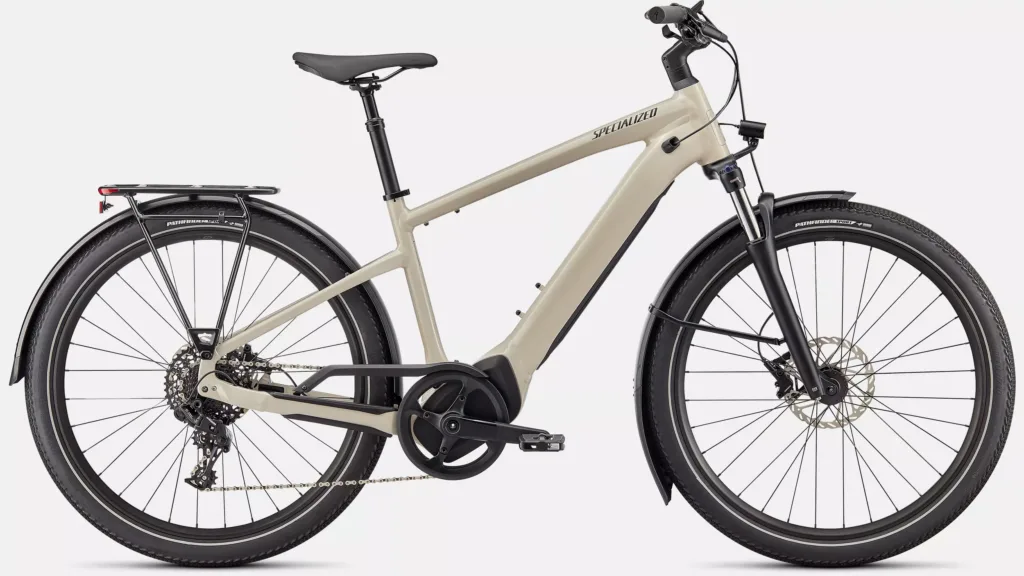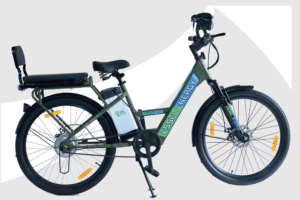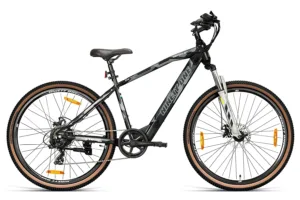The Future of Electric Cycles: Innovations and Emerging Technologies
The future of electric bikes is brimming with exciting possibilities and innovations, revolutionizing the way we commute and explore the world on two wheels. As a passionate cycling enthusiast, I am thrilled to delve into the advancements and emerging technologies that are propelling electric cycles into a new era of performance and sustainability.
First and foremost, electric cycle manufacturers are constantly pushing the boundaries of performance. With a relentless pursuit of excellence, they are elevating motor power, torque, and overall efficiency to new heights. These higher-performance electric bikes empower riders with increased speed and acceleration, making them ideal for conquering diverse terrains and accommodating various riding preferences. The future of electric bikes shines brightly with enhanced performance that takes cycling to exhilarating new levels.
Another crucial aspect of electric cycles is their range, determining the distance they can cover on a single charge. Manufacturers recognize this and are diligently working to extend the range of electric bikes. Through the integration of larger battery packs and optimized power consumption, riders can go further than ever before. Additionally, advanced power management systems and regenerative braking technology contribute to improved efficiency, maximizing the distance covered. The future of electric bikes promises extended ranges, enabling riders to embark on unforgettable adventures without the fear of running out of power.
In the quest for the ultimate riding experience, electric cycle manufacturers are prioritizing lightweight designs. By incorporating materials like carbon fiber and aluminum alloys, they achieve remarkable agility and comfort for riders. These lightweight electric bikes offer enhanced maneuverability, making them a joy to ride in any setting. Furthermore, advancements in frame design and battery integration contribute to a sleek and visually appealing appearance, epitomizing the perfect fusion of form and function. The future of electric bikes is characterized by lightweight designs that elevate both performance and aesthetics.
As the popularity of electric cycles soars, specialized models tailored to specific use cases and target audiences are gaining traction. Urban commuters, for instance, can revel in the convenience of foldable electric bikes that are compact and easy to carry on public transportation. Mountain bike enthusiasts, on the other hand, can explore rugged terrains with electric mountain bikes (e-MTBs) featuring robust suspension systems and specialized off-road features. Furthermore, cargo e-bikes designed to carry heavy loads are revolutionizing urban logistics and delivery services. The future of electric bikes encompasses a diverse range of specialized models, catering to the unique needs and preferences of riders across the globe.
Beyond the tangible advancements in electric cycle models, the integration of smart features is ushering in a new era of connectivity and convenience. The future of electric bikes embraces these intelligent capabilities, offering riders a seamless experience. Imagine having GPS navigation at your fingertips, effortlessly staying connected to your smartphone, or enjoying integrated lights that enhance visibility and safety. Additionally, some electric bikes even incorporate fitness tracking capabilities, allowing riders to monitor their progress and stay motivated. These smart features elevate the overall user experience, making every ride a technologically empowered journey.
While the evolution of electric cycle models is undoubtedly exciting, the future is equally bright for battery technology. Solid-state batteries, for instance, hold tremendous promise for the e-bike industry. By replacing the liquid electrolyte with a solid material, these batteries offer advantages such as higher energy density, longer cycle life, faster charging times, and improved safety. Companies like Quantumscape are at the forefront of solid-state battery technology and have formed partnerships with major automakers, envisioning potential integration into electric vehicles as soon as 2025. The future of electric bikes is intertwined with solid-state batteries, promising greater efficiency and performance.
Silicon-based anodes represent another compelling area of focus in battery technology. These anodes have the potential to significantly increase energy density, translating into longer-lasting and more powerful batteries. Sila Nanotechnologies, a pioneering company, is diligently working on developing silicon-based anodes for lithium-ion batteries, aiming to boost energy density by 20 to 40% compared to traditional lithium-ion batteries. With these advancements, the future of electric bikes will benefit from batteries that deliver remarkable power and endurance.
While solid-state and silicon-based batteries steal the spotlight, ongoing research and development efforts are also dedicated to improving traditional lithium-ion batteries. Scientists and engineers continue to explore advancements in electrode materials, electrolyte formulations, and cell manufacturing processes. These endeavors aim to enhance the energy density, cycle life, and safety of lithium-ion batteries, further optimizing their performance in electric bikes.
Furthermore, other battery technologies such as lithium-sulfur (Li-S) batteries, sodium-ion (Na-ion) batteries, redox flow batteries (RFBs), and zinc-based batteries are being explored for their potential use in electric cycles. Each of these technologies brings unique advantages and challenges, and ongoing research endeavors strive to overcome limitations and improve their viability for electric bike applications. The future of electric bikes encompasses a diverse array of battery technologies, promising a greener and more sustainable mode of transportation.
In conclusion, the future of electric bikes is brimming with excitement and innovation. Electric cycle manufacturers are forging ahead, introducing improved performance, extended range, lightweight designs, specialized models, and smart features to cater to the diverse preferences of riders. Simultaneously, battery technology is advancing with the development of solid-state batteries, silicon anodes, and ongoing improvements to traditional lithium-ion batteries. These technological advancements pave the way for electric bikes that offer enhanced efficiency, power, and safety, elevating the overall riding experience while contributing to a greener and more sustainable future of transportation.




